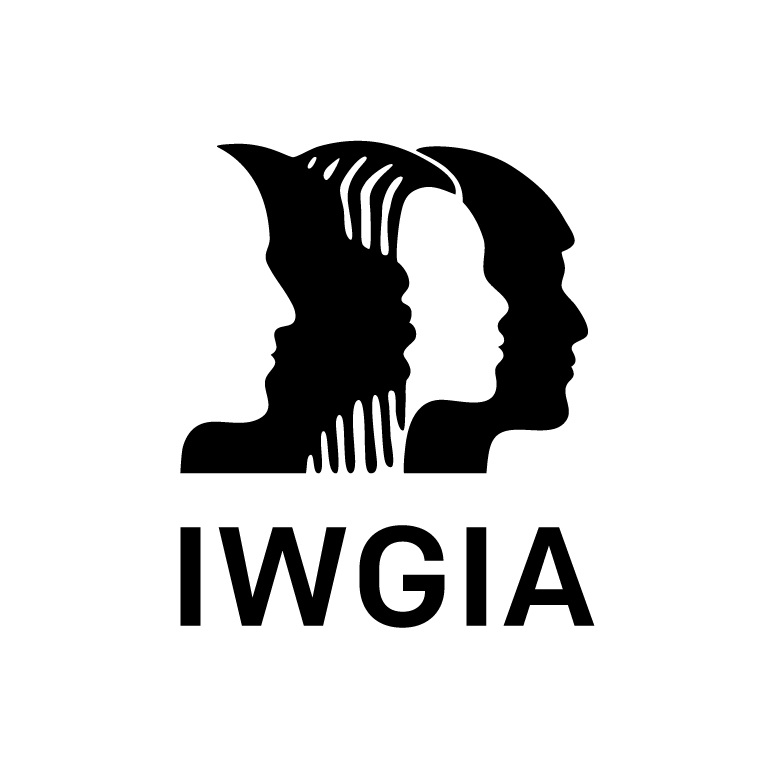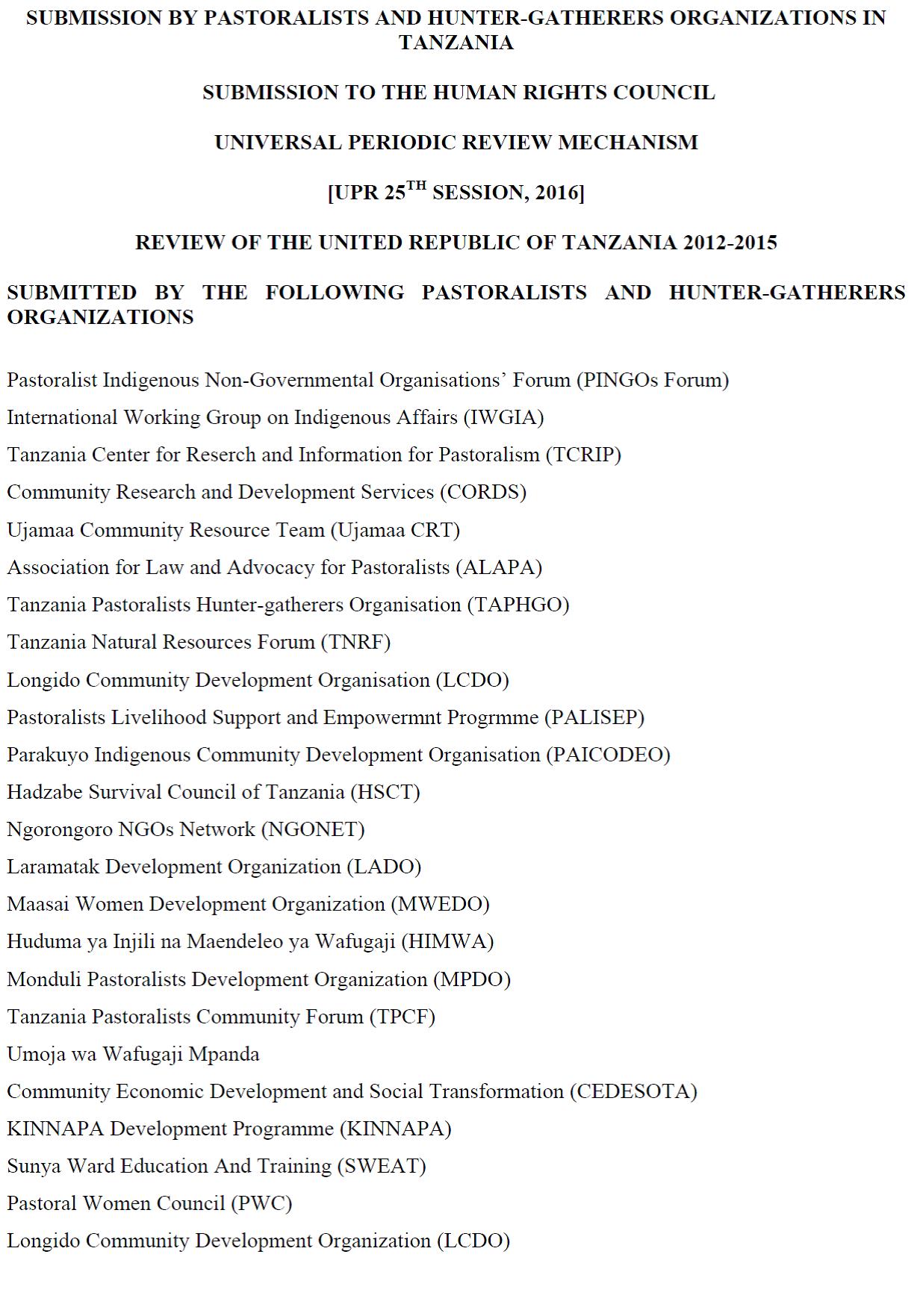Focal point
Location
IWGIA is a non-governmental human rights organisation promoting and defending Indigenous Peoples’ collective and individual rights.
We have supported our partners in this fight for more than 50 years.
We work through a global network of Indigenous Peoples’ organisations and international human rights bodies.
We promote recognition, respect and implementation of Indigenous Peoples’ rights, including the right to self-determination by virtue of which they can freely determine their political status and freely pursue their economic, social and cultural development.
Visit our website for more information and to access all our publications, including our flagship annual book The Indigenous World, a yearly overview of the state of the rights of Indigenous Peoples across individual countries and through various international mechanisms and processes.
Resources
Displaying 6 - 10 of 59Submission by Pastoralists and Hunter-Gatherers Organizations in Tanzania
This is a stakeholder submission prepared by a coalition of 24 pastoralists and huntergatherers’ Civil Society Organizations (CSOs), forums, networks and groups. The stakeholders submission is a compilation of primary and secondary sources of information, evidence and facts collected through consultative meetings and interviews with civil society organizations, public officials and community members, experts on pastoralism as well as members of the academia.
Submission by Pastoralists and Hunter-Gatherers Organizations in Tanzania
This is a stakeholder submission prepared by a coalition of 24 pastoralists and huntergatherers’ Civil Society Organizations (CSOs), forums, networks and groups. The stakeholders submission is a compilation of primary and secondary sources of information, evidence and facts collected through consultative meetings and interviews with civil society organizations, public officials and community members, experts on pastoralism as well as members of the academia.
Submission by Pastoralists and Hunter-Gatherers Organizations in Tanzania
This is a stakeholder submission prepared by a coalition of 24 pastoralists and huntergatherers’ Civil Society Organizations (CSOs), forums, networks and groups. The stakeholders submission is a compilation of primary and secondary sources of information, evidence and facts collected through consultative meetings and interviews with civil society organizations, public officials and community members, experts on pastoralism as well as members of the academia.
Submission by Pastoralists and Hunter-Gatherers Organizations in Tanzania
This is a stakeholder submission prepared by a coalition of 24 pastoralists and huntergatherers’ Civil Society Organizations (CSOs), forums, networks and groups. The stakeholders submission is a compilation of primary and secondary sources of information, evidence and facts collected through consultative meetings and interviews with civil society organizations, public officials and community members, experts on pastoralism as well as members of the academia.
Submission by Pastoralists and Hunter-Gatherers Organizations in Tanzania
This is a stakeholder submission prepared by a coalition of 24 pastoralists and huntergatherers’ Civil Society Organizations (CSOs), forums, networks and groups. The stakeholders submission is a compilation of primary and secondary sources of information, evidence and facts collected through consultative meetings and interviews with civil society organizations, public officials and community members, experts on pastoralism as well as members of the academia.



